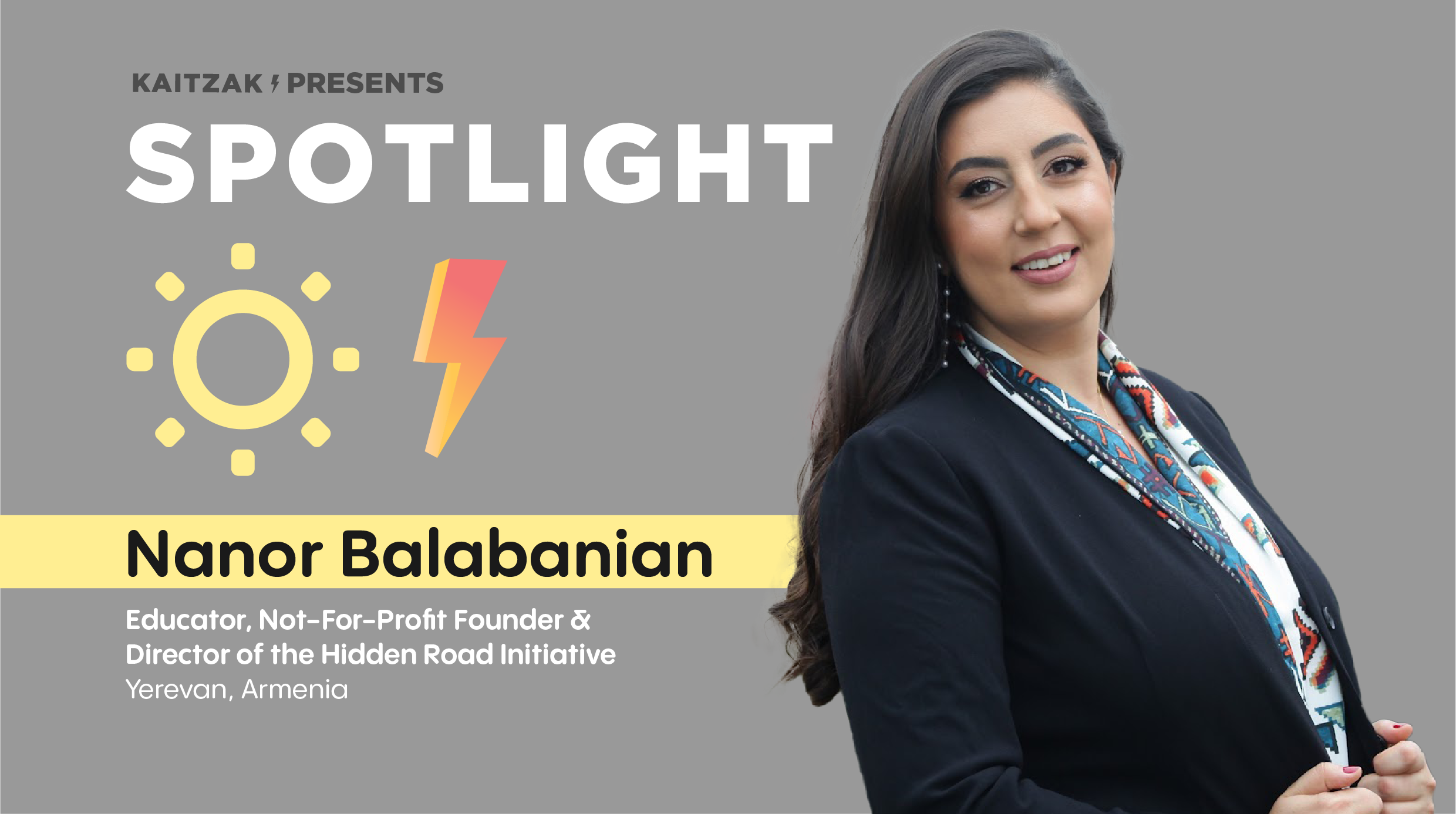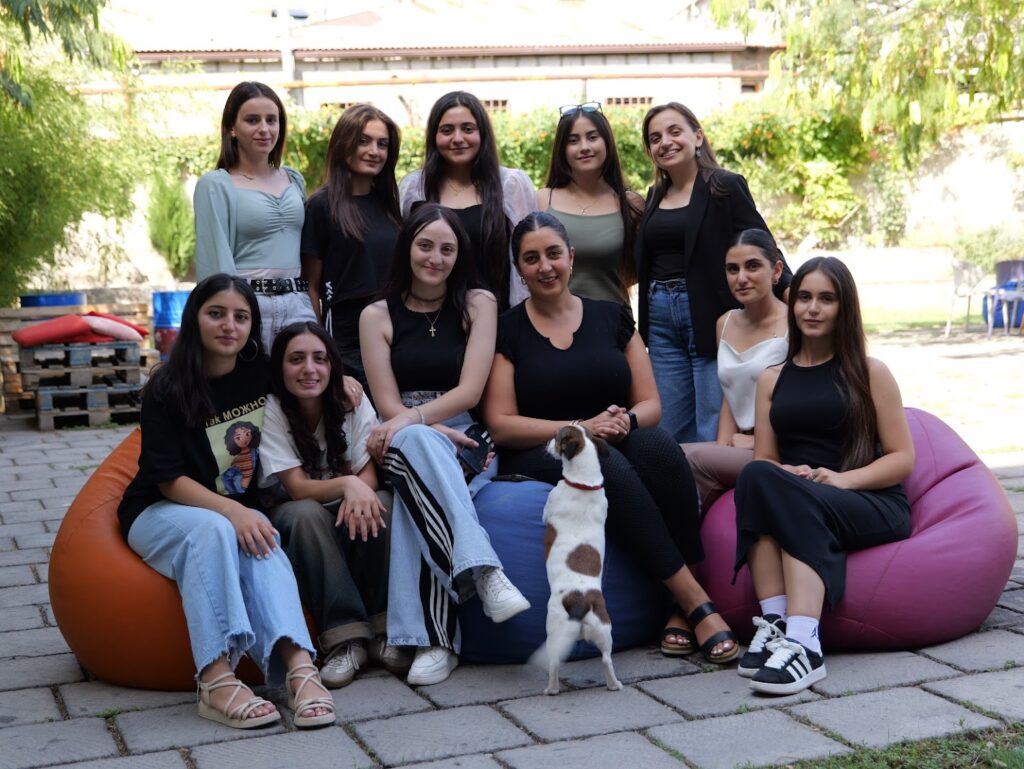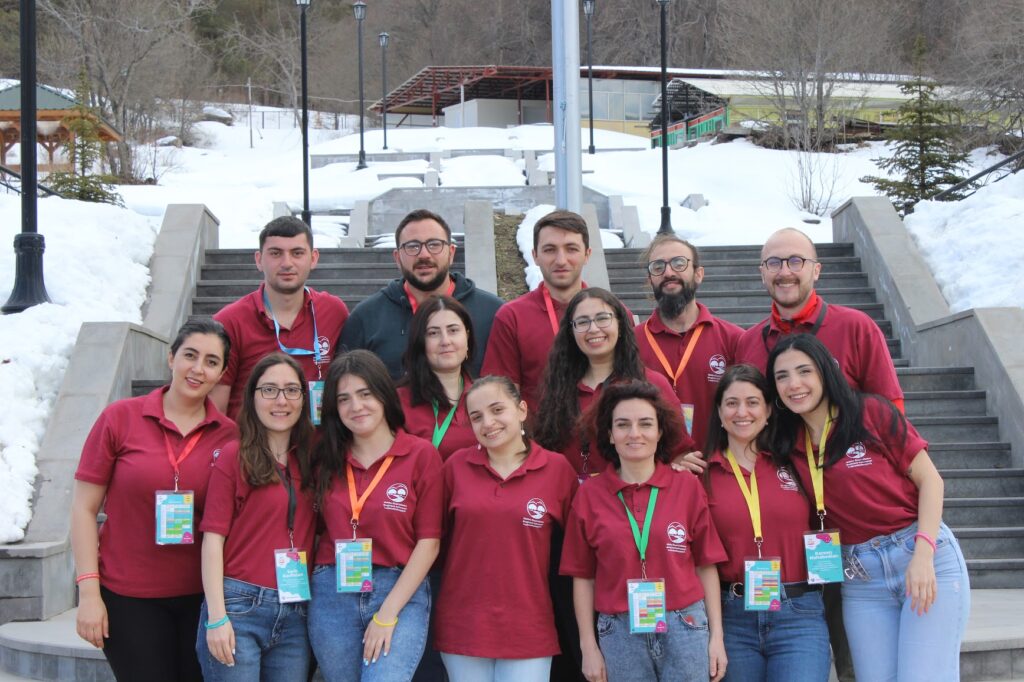
🔦 There’s no single path in the diaspora—each journey is unique, characterised by geographic movement, ancestral memory, and meaning making in new and foreign environment. In this series, we sit down with individuals from around the world who are uplifting the people and communities around them. They’re people using the principles of positive psychology—principles like resilience, purpose, and connection—to build stronger, healthier communities. These conversations are a celebration of the quiet work.🔦
Nanor Balabanian’s journey is rooted in her deep connection to both her heritage and her sense of purpose. Born in Syria and raised in Lebanon, Nanor moved to the United States at 15. While living in the US, she felt drawn to return to the region but wasn’t sure where exactly—until a visit to Armenia at 19 changed her life. That trip introduced her to isolated villages in Armenia that lacked educational opportunities. Inspired to make a difference, she launched her first project: a computer lab in a remote village in the Gegharkunik region. This initiative eventually grew into the Hidden Road Initiative, a nonprofit focused on educational and leadership opportunities for students in rural Armenia and Artsakh.

Hidden Road Initiative takes a long-term approach. It starts by connecting students with English teachers abroad, providing weekly classes based on the Cambridge English curriculum. Once students progress, they can attend camps where they meet peers from various regions and develop skills they wouldn’t otherwise access in traditional schools. This multi-stage journey continues through mentorship during high school and university, encouraging students to develop projects that benefit their home communities. The goal is to empower students to become leaders in their villages, promoting sustainable development at a grassroots level.
Nanor’s background in education prepared her well for this work. Growing up in Anjar, Lebanon, she was influenced by her parents’ involvement in education and the presence of a boarding school that supported children displaced by the Lebanese Civil War. After earning a degree in political science from UC Santa Barbara, Nanor pursued teaching, participating in a program that funded her Stanford education in exchange for teaching in low-income schools. For eight years, she worked in the California school system, gaining valuable experience in educational models, mentorship, and working with marginalized students. Each summer, she returned to Armenia to continue building Hidden Road.

In 2020, after years of feeling Armenia was where she was meant to be, Nanor moved there permanently—right as the war in Artsakh broke out. The sudden conflict displaced many families, and Nanor quickly organized volunteers to support children and families arriving in Yerevan. This led to the creation of a daycare where children could play, decompress, and feel safe while their parents sorted out immediate needs. That initiative expanded into broader support efforts, including setting up schools in shelters and even running art therapy programs in hospitals for wounded soldiers. Nanor also launched a “Books for Armenian Soldiers” program, providing books and letters from supporters worldwide to uplift those recovering in hospitals.

Nanor’s approach is grounded in relationship-building. She emphasizes the importance of integrating with local communities rather than arriving with ready-made solutions. She encourages others to live alongside locals, build trust, and understand cultural nuances. This approach allowed Hidden Road to grow organically and develop a model that centers student leadership, ensuring that the next generation drives positive change in Armenia’s rural regions. She is also currently teaching at the American University of Armenia as an adjunct lecturer.
Nanor’s story reflects a deep sense of responsibility—not just to help, but to empower. Her work demonstrates how sustained, thoughtful engagement can create long-term impact in vulnerable communities.
The Hidden Road Initiative Website
Follow HRI on social media
Donate to HRI